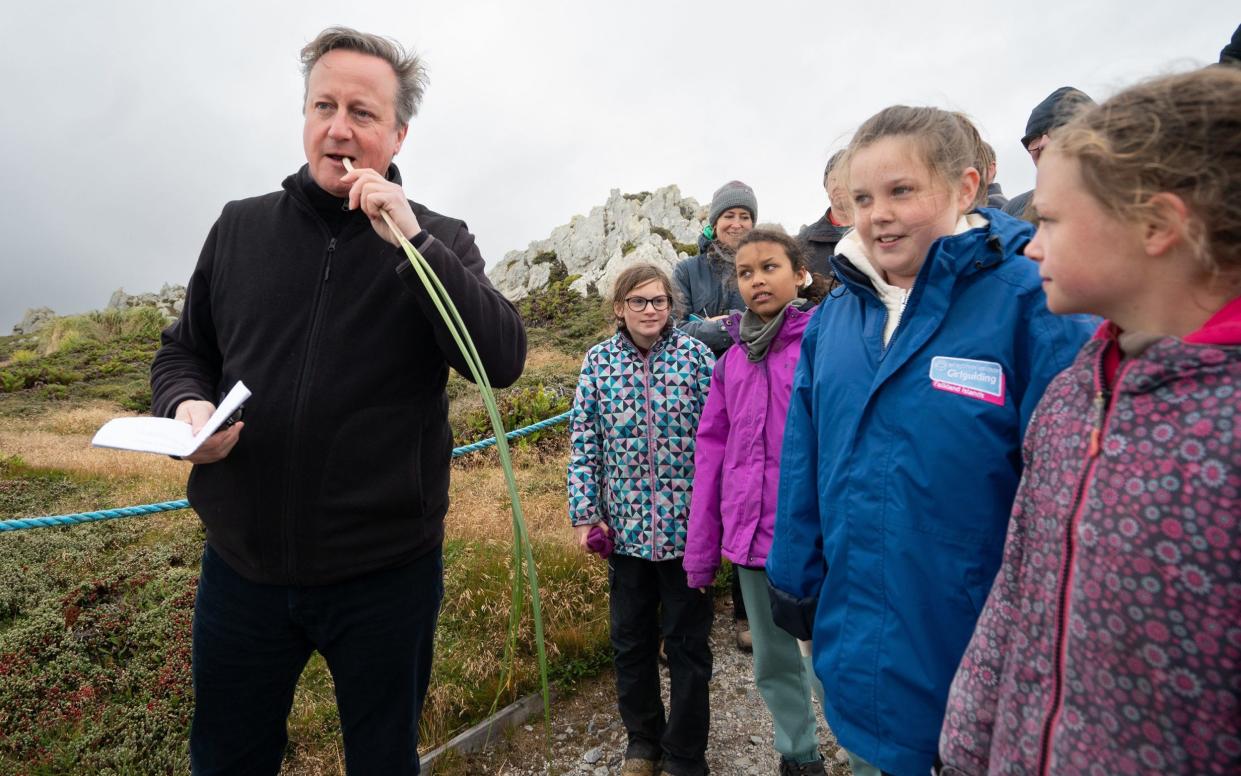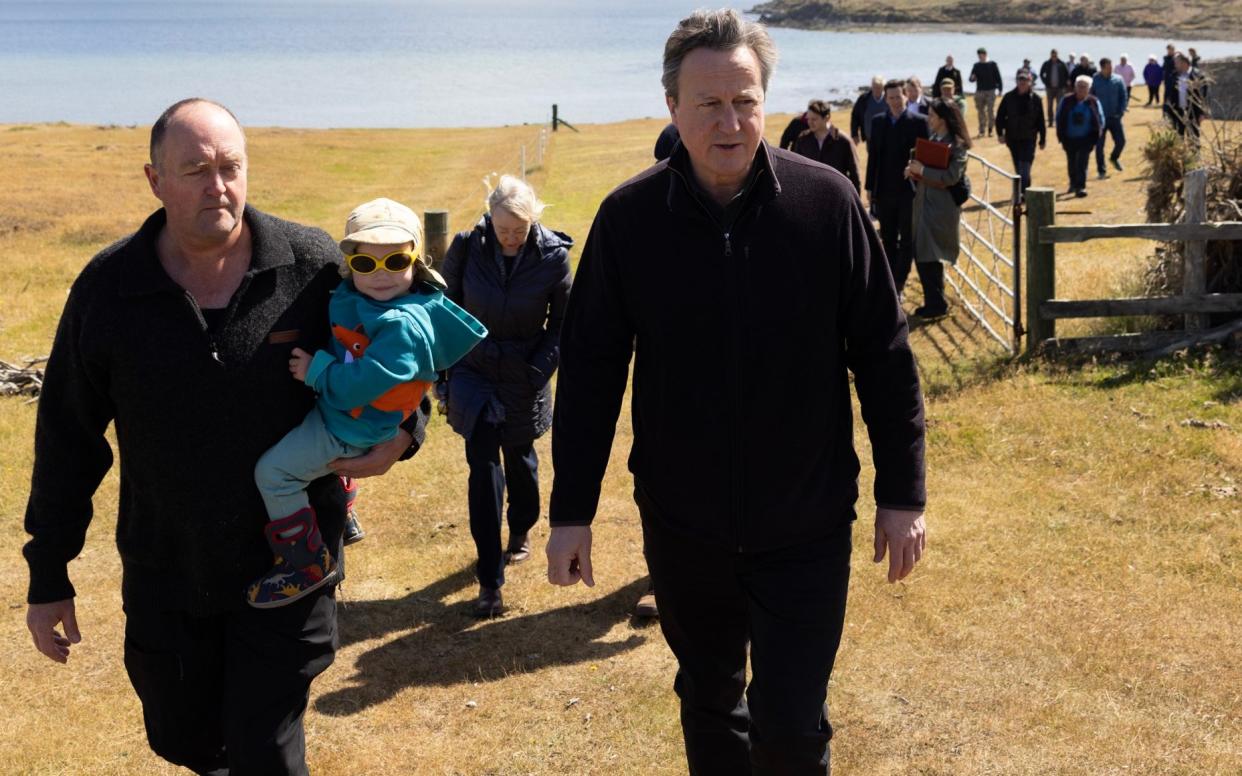Lord Cameron’s Falklands visit a provocation, says Argentinian governor

Lord Cameron’s visit to the Falkland Islands has been denounced as a “provocation” by an Argentinian governor.
His trip on Monday represented the first time a British foreign secretary has visited the region in more than 30 years.
The move was criticised by the leader of the Argentinian region that claims to include what the country refers to as Las Malvinas.
Gustavo Melella, the governor of the Tierra del Fuego, Antarctic and Southern Atlantic Islands, posted on X, formerly Twitter: “The presence of David Cameron on our Malvinas Islands constitutes a new British provocation and seeks to diminish our legitimate sovereignty claims over our territories and maintain colonialism in the 21st century. We will not stand for it.”
The region Mr Melella leads nominally includes offshore territories that Argentina does not control but over which it claims sovereignty, from the British-ruled Falklands, South Georgia and South Sandwich Islands to a swathe of Antarctica.
Lord Cameron said his visit to the Falklands archipelago, which was the object of a 1982 war between the UK and Argentina, was meant to make clear the territory remained “a valued part of the British family”.
The Foreign Secretary said Britain would “help protect and defend” the islands for as long as they want to remain British. In 2013, more than 99 per cent of Falklanders voted to remain part of the United Kingdom.

Buenos Aires has long claimed the islands on the basis that they should be part of its colonial inheritance from periods of Spanish rule, which ended when Argentina gained independence in 1816.
Lord Cameron, the first Cabinet member to visit the Falklands since 2016 and the first foreign secretary to do so since Douglas Hurd, spoke to Javier Milei, the Argentinian president, about the dispute when the two men met at Davos last month.
After the meeting, Mr Milei said that Lord Cameron would continue talks over the islands with Diana Mondino, Argentina’s foreign minister. They reportedly hit it off during the meeting, bonding over their mutual admiration for the Rolling Stones.
The Foreign Office also said the pair had a “cordial meeting” and that “they would agree to disagree, and do so politely” on the Falklands.
A Foreign, Commonwealth and Development Office spokesperson said: “It was a positive meeting, building on the Foreign Secretary’s discussion with President Milei at the World Economic Forum in January during which they agreed to embark on a new era of relations between Argentina and the UK.
“On the Falklands Islands, the Foreign Secretary reiterated the UK’s ongoing support for the Falkland Islanders’ right of self-determination. However, they noted that this would not prevent cooperation on areas that would be mutually beneficial.”
Previously, Mr Milei has said that he wants to seek a “feasible solution” to the sovereignty of the islands through diplomatic negotiation, comparing the situation to that of Hong Kong, which the UK handed over to China in 1997.
Despite the protests by Mr Melella, Mr Milei’s government remained tight-lipped about Lord Cameron’s visit. However, former officials joined the critique of Mr Cameron’s trip, with Santiago Cafiero, an ex foreign minister, expressing his “most categorical rejection” of the presence of a British foreign secretary in the archipelago.
“This is a new and inadmissible provocation, something which has not happened for 30 years and which must be rejected by the national government,” he said.
Guillermo Carmona, a former secretary of Malvinas affairs, said: “The Argentine foreign ministry remains silent in the face of a provocation that requires a diplomatic reaction. If the repudiation and protest do not come from the government, let us demonstrate as a people that we do not consent to colonialism.”
